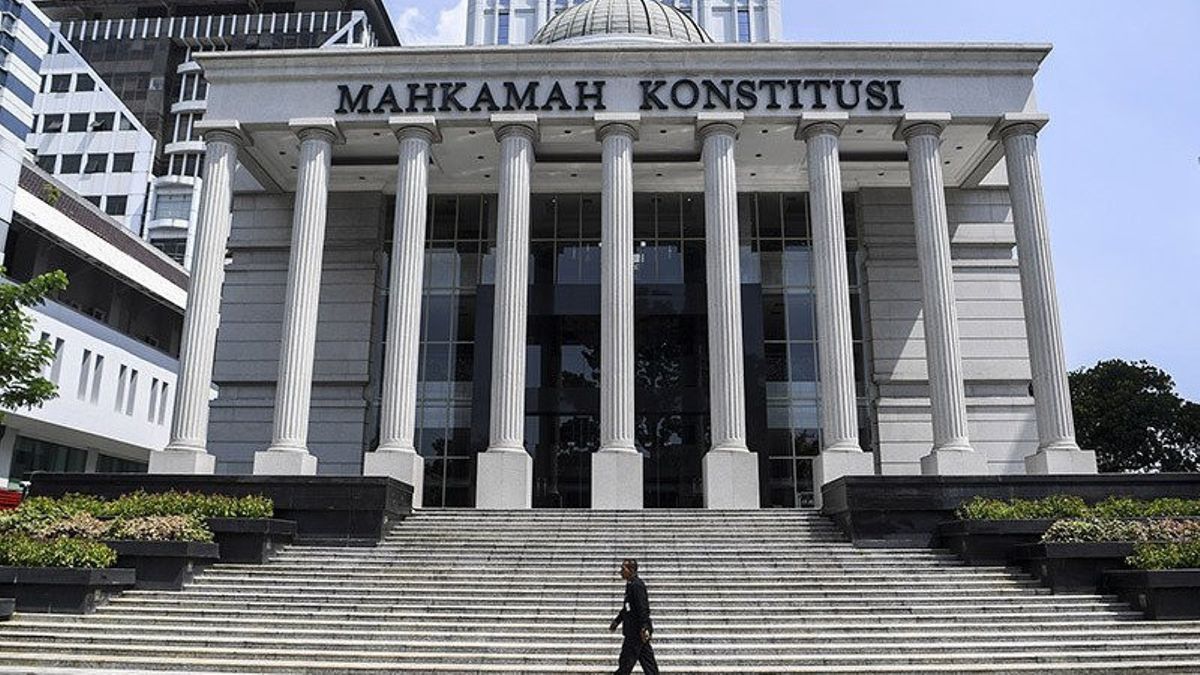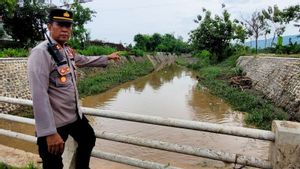JAKARTA - The Civil Society Coalition with 3 mothers of children with cerebral palsy, namely cerebral palsy, submitted a request for a judicial review of the Narcotics Law to the Constitutional Court (MK).
The Petitioner argued that the prohibition of the use of Narcotics Category I for health services as mentioned in Article 6 paragraph (1) letter a and Article 8 paragraph (1) of the Narcotics Law, is contrary to the 1945 Constitution which guarantees the right of citizens to obtain health services, namely Article 28H paragraph 1 and benefit from the development of science and technology in Article 26C paragraph 1.
The individual applicants consisted of three mothers whose children each was diagnosed with Cerebral Palsy. One of the children had improved his health after receiving marijuana therapy with a smoking system (burning incense) and administering cannabis oil (CBD Oil) in Australia. However, when he was in Indonesia, this treatment could not be continued.
"The prohibition on the use of Narcotics Category I for health services in Indonesia is a barrier for them to get treatment so that the quality of health and quality of life of children diagnosed with Cerebral Palsy cannot be improved / increased to the maximum extent that can be reached," said a written statement. Civil Society Coalition 'Narcotics Advocacy for Health Services', Friday, 20 November.
Apart from the individual petitioners, several non-governmental organizations also joined as petitioners in this judicial review, namely ICJR, LBH Masyarakat, and Rumah Cemara, which so far have been focusing on issues regarding the regulation and enforcement of the Narcotics Law.
According to the coalition, the rubber articles in the Narcotics Law, which are very broad in formulation and multiple interpretations, are used by law enforcement officials to also target people who use narcotics even though they are for medicinal purposes.
For example, the case of Fidelis in 2017 in Sanggau and the most recent case that had appeared, namely the case of Reyndhart Rossy N. Siahaan in May 2020. Whereas in the Narcotics Law, especially Article 4 letter a, continued the coalition, the aim of making this law was to ensure availability. narcotics for the benefit of health services as well as the development of science and technology.
"The petitioners asked the Constitutional Court to revoke Article 8 paragraph (1) of the Narcotics Law and state that the prohibition of the use of Narcotics Category I for health services is against the Constitution. In addition, it also asks for the explanation of Article 6 paragraph (1) letter a of the Narcotics Law to be amended by revoking the definition of Narcotics Category I so that it can be used for the purpose of developing science and health services / therapy, while still mentioning the very high potential to lead to dependence, "said the coalition.
The coalition said that it is time for the narcotics policy to be evaluated and directed to pay more attention to aspects of public health and to be taken based on scientific evidence (evidence-based policy).
"The provisions prohibiting the use of all types of narcotics including Narcotics Category I for health services in the Narcotics Law need to be abolished in order to facilitate and encourage clinical researches oriented to explore the use of narcotics in Indonesia," continued the coalition.
The English, Chinese, Japanese, Arabic, and French versions are automatically generated by the AI. So there may still be inaccuracies in translating, please always see Indonesian as our main language. (system supported by DigitalSiber.id)











